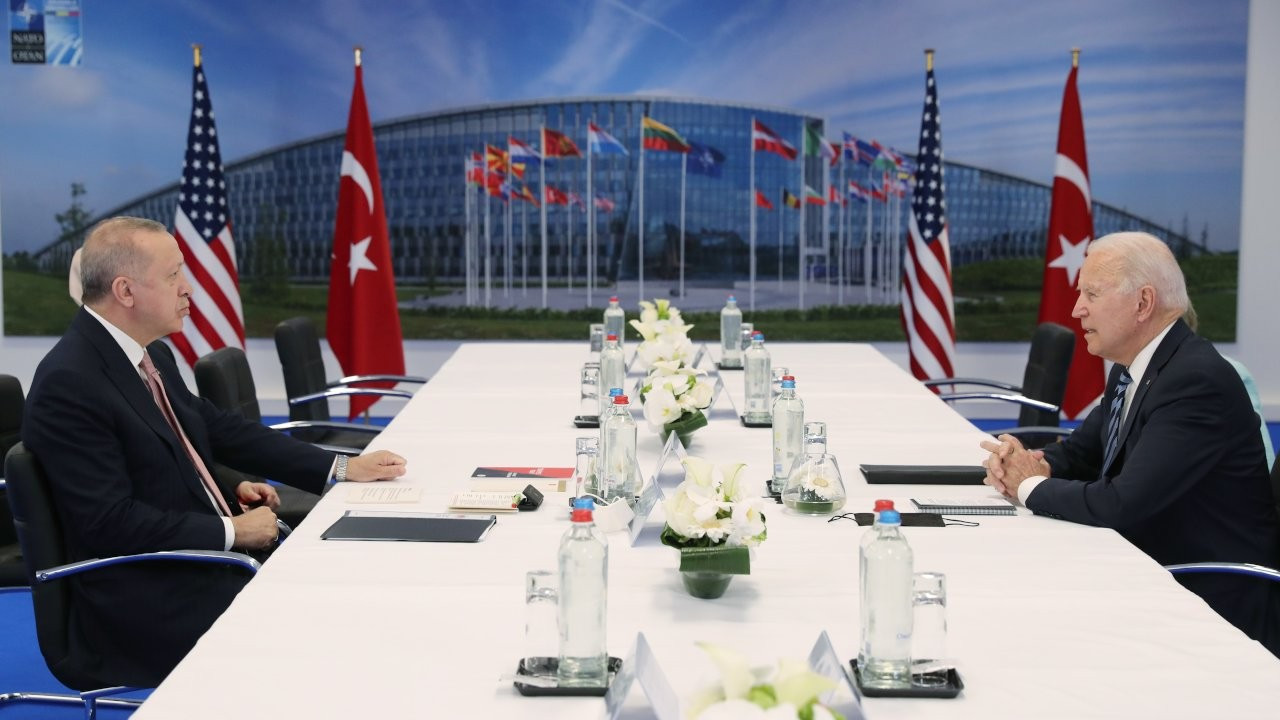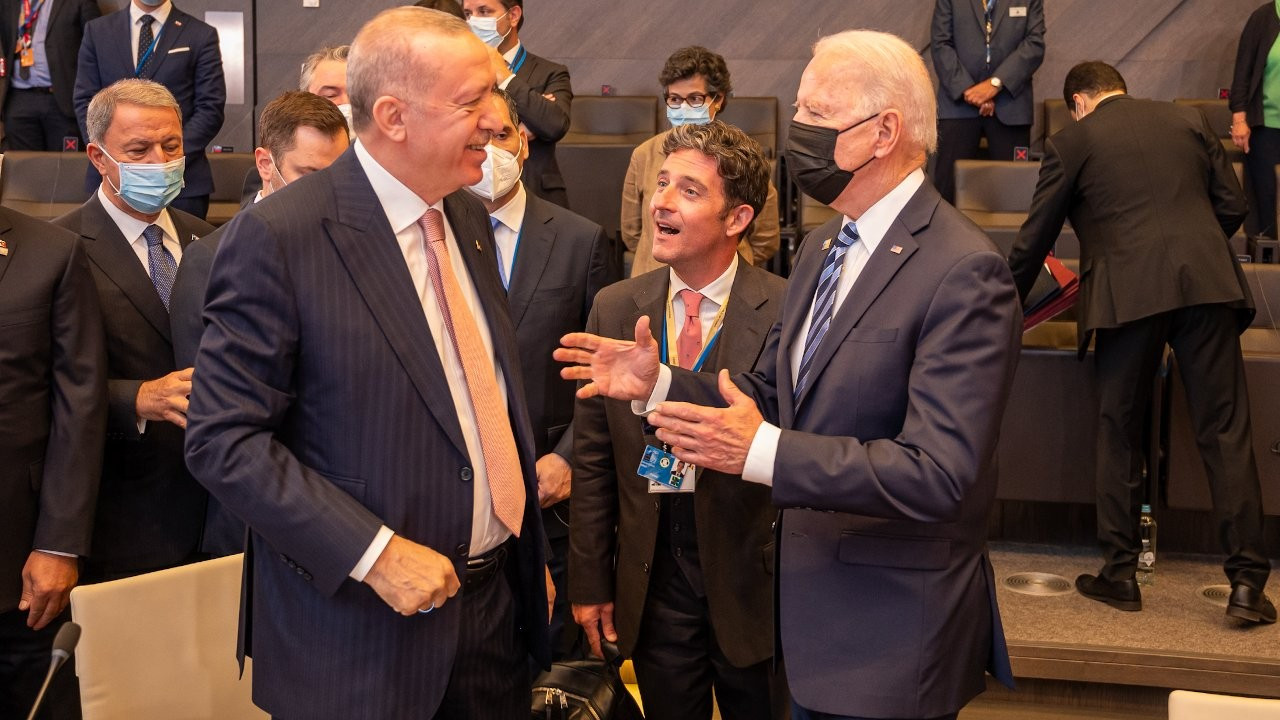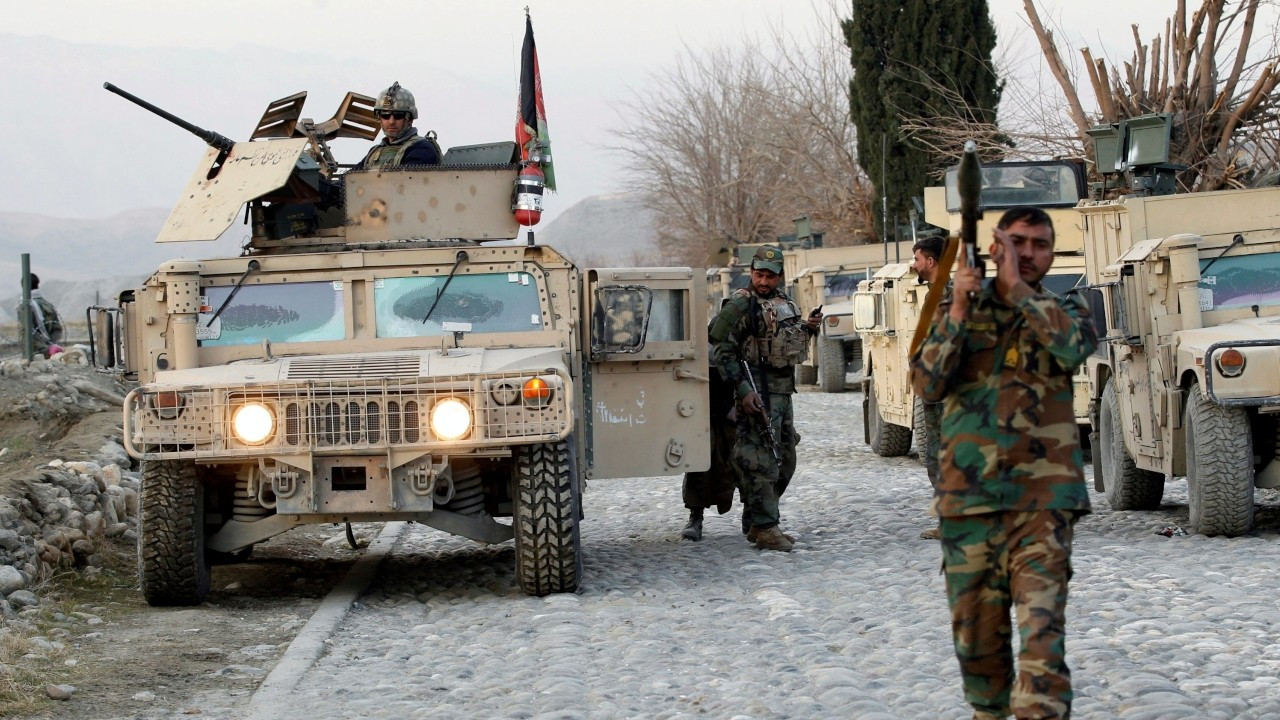US agrees to give Turkey lead role in securing Kabul airport
Biden and Erdoğan agreed earlier this week that Turkey will play a "lead role" in providing security at Kabul's Hamid Karzai International Airport after NATO forces withdraw from Afghanistan, U.S. National Security Advisor Jake Sullivan said on June 17.
Reuters - Duvar English
U.S. President Joe Biden and Turkish President Recep Tayyip Erdoğan agreed in a meeting this week that Turkey would take a lead role in securing Kabul airport as the United States withdraws troops from Afghanistan, U.S. National Security Advisor Jake Sullivan said on June 17.
Sullivan told reporters that Biden and Erdoğan, in their meeting on June 14 at the NATO summit, discussed the Afghanistan issue. Erdoğan sought certain forms of U.S. support to secure the airport and Biden committed to providing that support, Sullivan said.
"The clear commitment from the leaders was established that Turkey would play a lead role in securing Hamid Karzai International Airport and we are now working through how to execute to get to that," Sullivan said, giving the first details from the U.S. side of the meeting which the Turkish presidency has not provided details of.
However, Biden and Erdoğan were not able to resolve the long-standing issue of Turkey's purchase of Russian S-400 defense systems, Sullivan said, a bitter dispute that strained ties between the NATO allies. He added that there was a commitment to continue the dialogue on the issue.
Turkey and the United States have been at odds over a host of issues including Ankara's purchase of Russian weaponry, policy differences in Syria and the Eastern Mediterranean and expectations for a breakthrough in the first face-to-face meeting between Erdoğan and Biden were slim.
The two leaders sounded upbeat after their meeting although they did not announce what concrete progress they made. One potential area of cooperation has been Afghanistan, where Ankara has offered to guard and operate Kabul airport after U.S. and NATO forces withdraw in the coming weeks.
The security of the airport is crucial for the operation of diplomatic missions out of Afghanistan as Western forces pull out.
Last week, a Taliban spokesman said Turkey should withdraw its troops from Afghanistan under the 2020 deal for the pullout of U.S. forces but Sullivan said the Taliban comments did not deter the "detailed and effective" security plan the United States was putting together.
"Obviously we take seriously the concern that Taliban or other elements in Afghanistan will attack the Western or the international presence...We do not believe that what Taliban has said publicly should or will deter the efforts underway right now to establish that security presence," he said.
As president, Biden has adopted a cooler tone than predecessor Donald Trump towards Erdoğan. Biden quickly recognized the 1915 massacre of Armenians as genocide - a position that angers Turkey - and stepped up criticism of Turkey's human rights record.
Sullivan provided little details on how, if at all, the impasse over the S-400s, which prompted Washington to remove Ankara from the F-35 fighter jet program and impose sanctions, would be resolved.
"They discussed it. There was not a resolution of the issue. There was a commitment to continue the dialogue on the S-400 and the two teams will be following up on that coming out of the meeting," he said.
Earlier on June 17, Erdoğan said he had Biden that Turkey would not change its stance on its Russian S-400 missile defense systems.
"I told Biden that they should not expect Turkey to take a different step on the F-35 and S-400 issues because we did what we had to for the F-35s and gave the necessary money," Erdoğan told reporters on a return flight from Azerbaijan.
"We must monitor developments closely. We will be following up on all our rights," he said. "In the next period, our foreign ministers, defence ministers and defence industry chairs will be moving this process forward by meeting with their counterparts."

 Erdoğan says he told Biden Turkey is not shifting stance on S-400s, F-35 programmeDiplomacy
Erdoğan says he told Biden Turkey is not shifting stance on S-400s, F-35 programmeDiplomacy Lira weakens after Erdoğan says stance on S-400s remains unchangedEconomy
Lira weakens after Erdoğan says stance on S-400s remains unchangedEconomy Russia says Turkish military presence in Afghanistan would violate US-Taliban dealDiplomacy
Russia says Turkish military presence in Afghanistan would violate US-Taliban dealDiplomacy